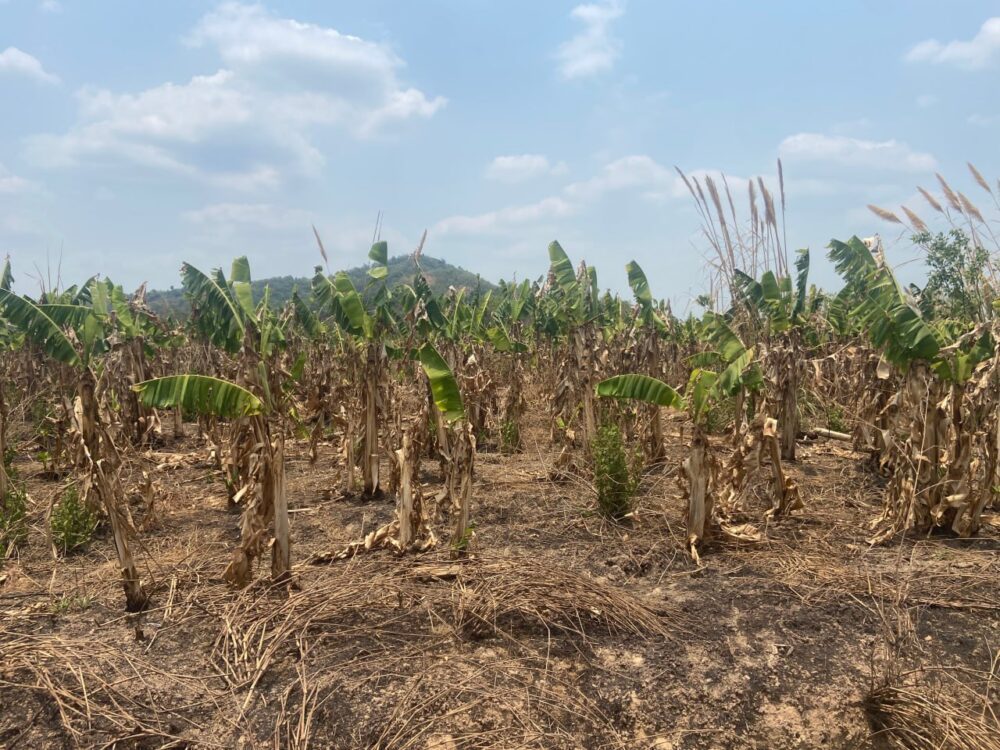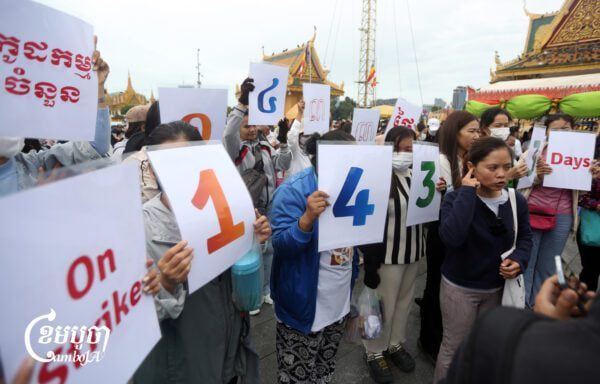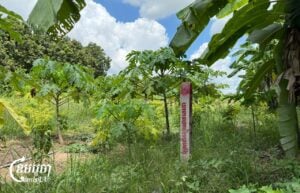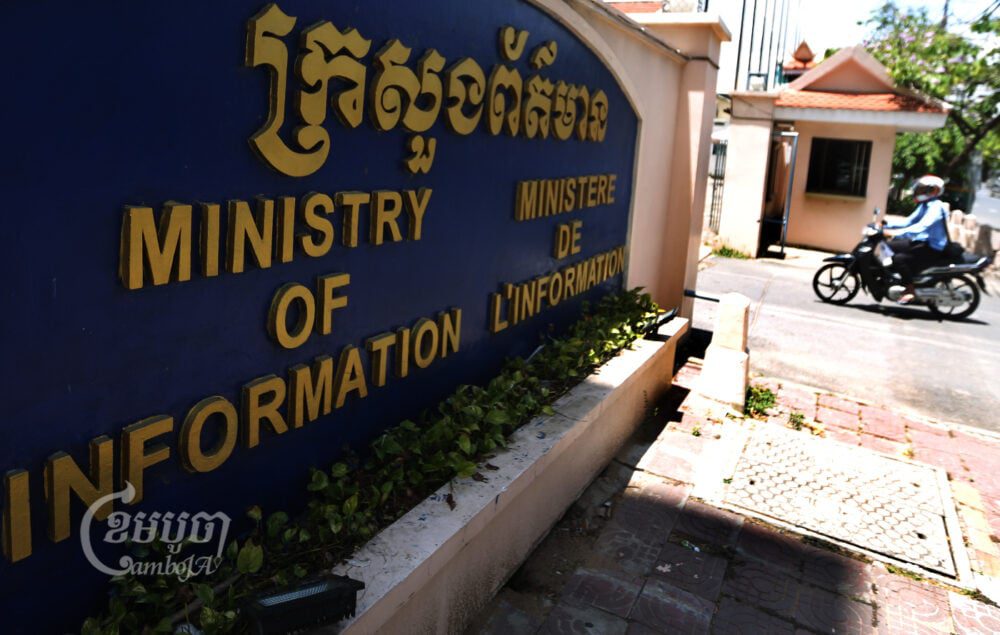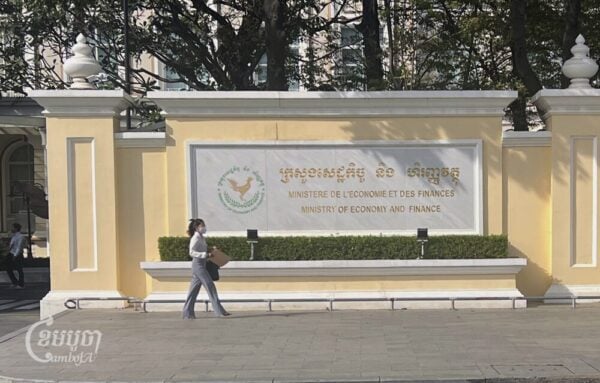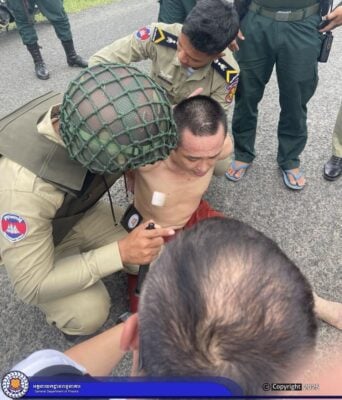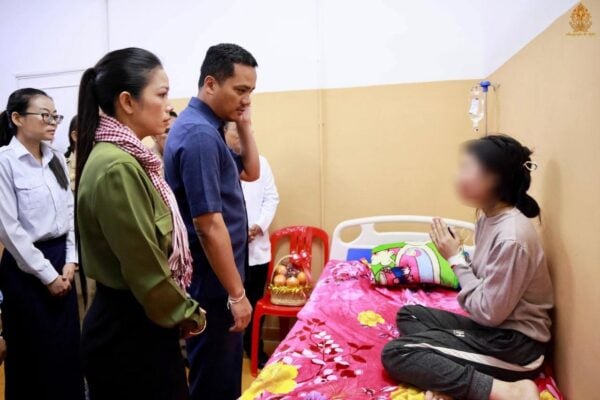Andong Meas District/Ratanakiri Province – For nearly three years, about 300 local workers, 50% of them women, worked in a Vietnamese banana plantation belonging to Hoang Anh Gia Lai Joint Stock Co (HAGL), covering 245 hectares in Talao commune, Andong Meas district in Ratanakiri province.
Their livelihood depended on the banana plantation but things changed when the company closed it in 2023. In that time, workers faced many problems, especially health issues caused by chemical poisoning and poor support by the company.
Locals, who used to work for the company, shared the health issues they faced and the environmental impact caused by the company.
Sam Sophon, 33, who used to spray chemicals on the plants, said they were not provided with personal protective equipment, like masks. So, he and his colleagues wrapped their faces with scarfs when they sprayed the chemical. “The smell of the chemical was so strong. I believe it [must have] affected my breathing and lungs.”
“I remember once one of my colleagues became weak and lost consciousness while spraying chemicals. He decided to quit the job after that,”he added.
Because no personal protective equipment was provided, it was the responsibility of the workers, who assumed the risk, to protect themselves from chemical poisoning.
Another worker, Toch Seang Lim, 44, whose job was to wrap the bananas with plastic, said “almost every worker” was affected by chemical poisoning.
“The company used a truck to spray chemicals on the plants at night from 8 pm to 10 pm. When the workers start work early in the morning, the chemicals on the plants would not have dried and still lingered [in the air],” she said.
Seang Lim, her husband and three kids worked on the farm. As contract workers, the family worked hard from 6 am to 5 pm every day without holidays or weekends. She earned 25,000 riel or about $6 a day.
“It was not just me or my family members who saw it, but all the workers knew that the chemicals had a bad impact on our health, especially our breathing and lungs, but we needed money, so we worked there,” she said.
According to NGO Equitable Cambodia, HAGL is one of Vietnam’s largest private companies and among the largest concession holders in Ratanakiri, which is involved in rubber and banana plantations.
Back in August 2018, the Ho Chi Minh-listed firm announced plans to expand its banana plantation in Ratanakiri to export to the Chinese market, investing $42 million in 5,000 hectares.
In Andong Meas, the banana plantation covering 245 hectares in Talao commune is part of a 9,470 hectares economic land concession contracted with the government for 70 years. It began planting bananas in 2020, nine years after registering with the Ministry of Commerce.
During the Covid-19 pandemic, workers had no choice but to work for the company although the payment was low and the work was dangerous.
The terrible thing about the effect of chemical poisoning on health was that it does not show immediately, but a few months or years later, Seang Lim said. “It happened to my youngest son who was under seven years old at the time. I only realize now that my son’s health is bad. He is exhausted and has lung problems, which the doctor confirmed was due to the effects of the chemical,” she said.
Another worker, Chorn Poy migrated from Prey Chhor district in Kampong Cham province to work in the banana plantation. The 52-year-old was joined by his two sons, who stayed and worked with him on the farm. They did not go to school as it was far, about four kilometers away. Instead, they helped him on the banana plantation, exposing themselves to chemical poisoning.
Plantation supervisor Yatt Kheng said the chemical fertilizer used by the company was from Vietnam, so the label did not have Khmer wordings. “The chemical fertilizer is mixed by the company. We don’t know the name of the fertilizer and we can’t understand because it is in Vietnamese language,” Kheng said.
Commonly, when a worker gets sick, they have to see a doctor themselves and pay for the treatments on their own. Workers are responsible for their own health and safety when spraying chemical fertilizer on the plants, he added.
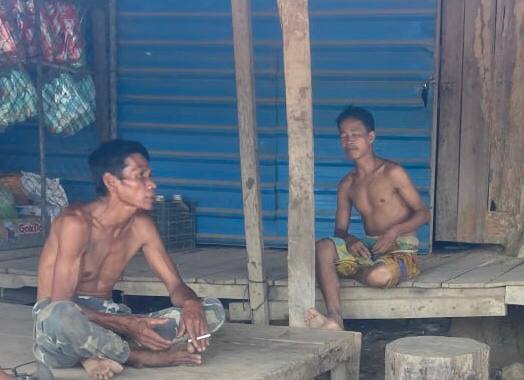
The company was “not responsible” for any health hazards or danger at work. All workers had been informed about this by the company prior to their work, he said.
“There was a case of a farm worker who got into a traffic accident while riding to work. He was seriously injured and had to go to hospital and pay for the treatment on his own. The company did not provide any support,” Kheng recalled.
He said workers often fell sick with sore throats and stomach aches, the latter due to irregular eating habits.
Workers also faced another major problem which was not having the National Social Security Fund (NSSF) card which was the company’s responsibility. It was supposed to register and provide the cards to all workers. “But most of us did not receive the NSSF card, although we paid the monthly fee of 12,000 riel or $3,” Kheng said. Out of 100 workers, about 10 workers received their NSSF cards. It caused a lot of difficulties, as it was costly for workers when they went to the hospital without the card.
Vice governor of Andong Meas district, Im Va, acknowledged the issues, saying that “HAGL did not comply with the labor law”. The company “did not care about workers’ safety and health”, for example, ensuring that workers received the NSSF card.
In addition, the company failed to cooperate and communicate with the district administration, he alleged, adding that his superior, the district governor, used to report to the Ministry of Labor and Vocational Training, but there were no solutions or improvements.
Va said the use of chemical fertilizers by the company was “out of their control” as they were not reported to his office. “Most of the chemicals are imported from Vietnam and have Vietnamese language, which is beyond our capacity to monitor and control.”
He added that the chemical not only affected the workers but also the environment because “tons of chemical buckets and plastic were left along the stream or thrown into it”.
Le San Phok, managing director of HAGL, admitted to not providing NSSF cards to all the workers, noting that the company had stopped planting bananas in 2023 and that most of the workers have migrated to other banana farms in Stung Treng province. There are only 40 workers left in the farm at the moment.
San Phok said the company shut down the plantation due to disease and “huge insects”, which destroyed the bananas. They could not be controlled. “The company tried its best to control the infestation but couldn’t and the disease and insects kept getting stronger. So, the company decided to close the plantation.”
The company now focused on other food crops like mango and jackfruit, as well as rubber, he said.
Meanwhile, Seang Lim, the mother of three, remains at the farm. She reiterated that the situation worsened when the company closed the plantation in 2023. Her income dropped and her family’s health declined. She needed money for her son’s lung treatment on a regular basis.
Having no other option to earn an income, she decided to stay with the company and work at their rubber plantation.
In future, Seang Lim suggested, foreign investors should comply with Cambodia’s laws and provide proper compensation for workers when operations end or when the company goes bankrupt.
About the company
The Vietnamese company Hoang Anh Gia Lai (HAGL) is one of Vietnam’s largest private companies and one of the largest concession holders in Ratanakiri. Its agribusiness operations are primarily for the cultivation of rubber plantations and banana plantations.
According to the company announcement on August 2018, HAGL plans to expand its banana plantations in Ratanakkiri province to increase exports to the Chinese market.
The firm invested $42 million in 5,000 hectares of land in the province to grow bananas that will be shipped to China. The company now owns 1,000 hectares of banana plantations in northeast Cambodia through three subsidiaries.
They are Hoang Anh Andong Meas Co Ltd, Hoang Anh Lumphat Co Ltd and Hoang Anh Daun Penh Agrico Co Ltd.
At HAGL Andong Meas alone the banana plantation were 245 hectares in Talao commune, Andong Meas district out of 9470 hectares of total land concession contracted with the government for seventy years.
Equitable Cambodia, “A Human Rights Impact Assessment of Hoang Anh Gia Lai’s Economic Land Concessions in Ratanakiri, Cambodia,” ODC, January 18, 2022, https://data.opendevelopmentcambodia.net/en/library_record/webpage-capture-of-hoang-anh-ratanakiri-company-human-right-report
LICADHO, “The great Cambodian giveaway: visualizing land concessions over time,” ODC, January 18, 2016, https://data.opendevelopmentcambodia.net/library_record/visualizing-land-concessions-over-time4
The company started the plantation in 2020, nine years later after its registration with the Ministry of Commerce in 2011.
Ministry of Commerce, “Notice of establishment of commercial enterprise: Hoang Anh Andong Meas Co., Ltd” ODC, 2014, https://data.opendevelopmentcambodia.net/library_record/notice-of-establishment-of-commercial-enterprise-hoang-anh-andong-meas-co-ltd-amendment
Note: This article is part of a research on the impact of foreign investments on livelihood adaptation of local workers in Cambodia. It does not represent the views of CamboJA News.

